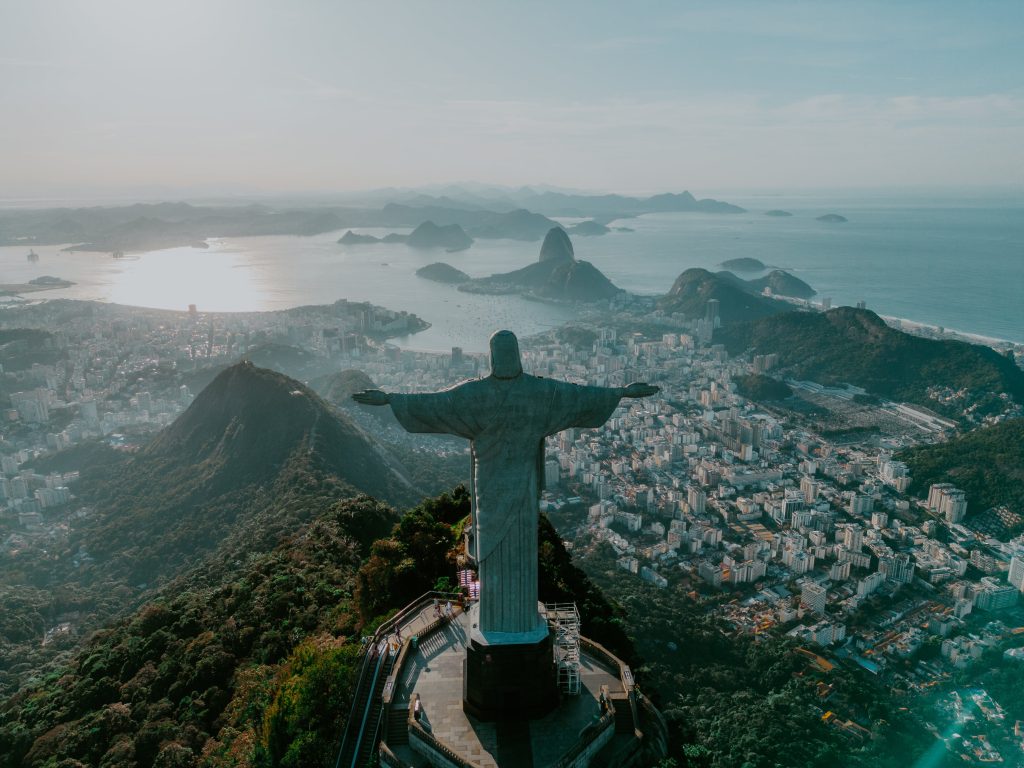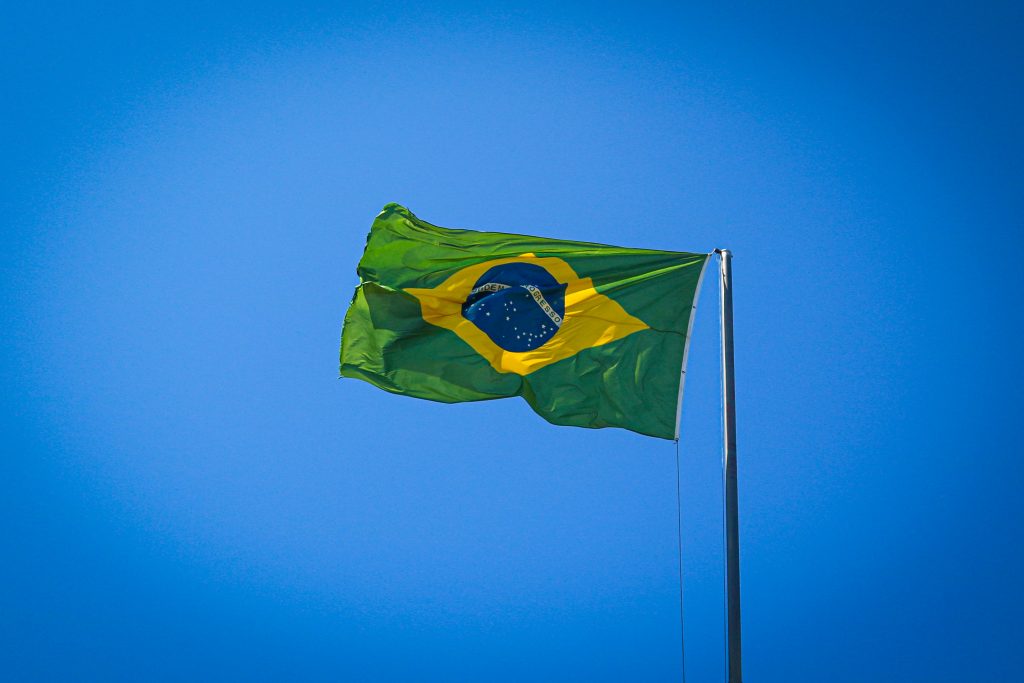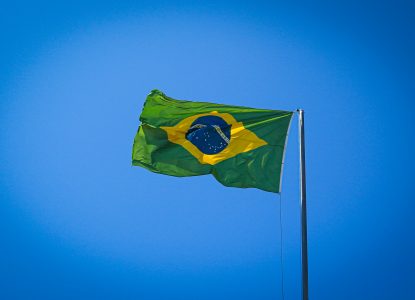By Katherine Marshall, Vice President, G20 Interfaith Association
On August 20, 2024, at the G20 Interfaith Forum in Brasilia, Katherine Marshall, Vice President of the G20 Interfaith Association and Senior Fellow at Georgetown University’s Berkley Center, delivered a comprehensive overview of the Forum’s ten-year journey. This presentation explored the evolution of the G20 Interfaith Forum, its role within the broader G20 framework, and its mission to bring religious perspectives to global policy discussions. Marshall’s remarks traced the Forum’s development from its inception in 2014 to its current status as a significant voice in global governance discussions. She highlighted the importance of religious engagement in addressing global challenges and the Forum’s unique position as a “network of networks” bringing together diverse faith-based perspectives on critical issues facing the world today.
– – –
Why the G20?
The G20 (Group of 20) is very much part of today’s global governance structures. Created in 1999 with the prime mission of crisis management, it reflected a tacit recognition of challenges in working within the vast and complex United Nations system. The idea was to establish a more flexible, adaptable, less formal mechanism, yet one that was more inclusive or less exclusive than the G7. The G20 came into being essentially as an annual summit of powerful world leaders, and has taken on increasing importance since the 2008 economic crisis and the COVID19 emergencies.

A feature of the G20 (like the G7) is that its presidency and thus location rotates every year. India, the 2023 host, passed the presidency baton to Brazil in December 2023, which in December 2024 will pass it to South Africa and, the year after, to the United States. With this rotating presidency, the G20 process each year reflects a different agenda and ethos, obviously with some continuity. With no formal secretariat, the Summit of leaders is a central focus (November this year); the term Sherpas is used for those who support the leaders as they climb towards the summit. Despite this core, straightforward feature, a constellation of processes have emerged around the G20, with ministerials, different tracks, task forces, working groups, and 13 engagement groups.
The G20 has focused and to a large extent still focuses on managing global crises. This is critical amidst today’s extraordinary array of interlinked challenges: what we term the megacrisis or perma crisis. The G20 agendas have, however, broadened over the years so that they do now include the Sustainable Development Goals, which essentially means the entire global agenda.
Far more could be said about the G20, but we have chosen to focus on it because of its central roles and its focus on both crises and global agendas.
So why faith and interfaith in the G20 process?
We begin with the observation that religious institutions are often invisible in global policy forums, despite vital insights and action roles. This core observation has many dimensions, but most important is the common commitment of world religions—in their teachings and practical action—to those who are most vulnerable, and buffeted by crises. Articulated through many interfaith efforts, their voice belongs as a part of the G20. There are predecessors to that notion, for example efforts to engage religious voices in the G7/8 processes since the 1990s, and parallels, for example in faith representation at the United Nations. But our efforts as an institution and collaboration have since 2014 focused on the G20.
Reiterating the core rationale for this interfaith focus, some 84% of the world’s population has some religious affiliation, and that voice, complex as it is, should be an essential part of global discussions. The voice is expressed in many different voices and cadences, but the core idea is that leaving religious inputs aside is gravely mistaken.
From there, our idea and objective is to support a structured, systematic, and continuing voice of religious actors in the G20 process.
The G20 Interfaith Forum has evolved over the years, and our goals and reach have become steadily more ambitious. Born, in 2014, with a meeting alongside the G20 Summit in Australia, the G20 Interfaith Forum has focused each year since then (Turkey, China, Germany, Argentina, Japan, Saudi Arabia, Italy, Indonesia, India), with a specific meeting or forum. Increasingly the G20 Interfaith organizes and participates in a wider set of meetings and collaborations where the G20 agendas and issues are integrated in broader discussions on leading agendas, for example on refugees, children, climate, and hunger. We have moved from a fairly academic discussion on diverse religious perspectives to an explicit focus on the G20 agendas, and notably the most relevant Sustainable Development Goals.
A central concept and modus operandi is what we call the network of networks. The G20 Interfaith Forum draws on the most relevant, demanding work of the many faith, multifaith, interfaith and intrafaith efforts that address the global agendas. They include the large global networks (Religions for Peace, United Religions Initiatives), specialized groups (ACT Alliance, Peacemakers network, PaRD (International Partnership of Religions for Sustainable Development), and many others, including Arigatou International, the Interfaith Alliance for Safer Communities, KAICIID, and the Joint Learning Initiative. The G20 Interfaith Forum supports and draws wisdom from these and others
So where does the G20 Interfaith fit within the complex G20 world, that some describe as a constellation?
The G20 Interfaith Forum is part of the “constellation” around the G20, though it is not a formal engagement group. We work with several of the formal engagement groups, notably the C20 (civil society) and T20 (think tanks). We believe though that the religious dimension is distinctive and needs its own voice. There are advantages and disadvantages to being a valued and respected member of the G20 process, but with our own distinctive qualities, character, and organization.
The IF20 is run as a virtual collaborative, engaging people from G20 countries and beyond, represented in an Advisory Council that meets regularly. It has a small secretariat, in Utah, is a US 501 C3, and works with several organizations, including Brigham Young University Law School and Georgetown University. A priority if to strengthen the structure in the coming months.
The Brazil G20 Presidency
is our focus here, and the Forum agenda is linked closely to Brazil’s agenda, with the strong common theme of action on poverty and support to those who risk being left behind. The G20 Forum has engaged with different Brazilian communities throughout the year, with meetings in Brasilia, Rio, Belem, and Manaus, focusing among many other issues on interfaith action on bold action on hunger, to protect the Amazon rainforest, and interreligious relationships notably involving communities of African descent and indigenous communities.. Important discussions took place in Addis Abeba (African Union), Geneva, and Indonesia. We look forward to continuing collaboration on the Brazilian presidency, culminating in the Social Summit in November in which we will participate.

So what is G20 Interfaith Forum’s central focus, now and looking ahead?
Today’s extraordinary times place heavy demands on the G20 leadership and thus on the G20 Interfaith Forum. We see the constant, dynamic intersections of different crises. No line separates the climate crisis from hunger, conflict from refugees, and the plight of women and children. Conflicts demand much of the G20 leadership and of the G20 partners, like the G20 Interfaith Forum. The G20 Interfaith Forum offers the opportunity to a “network of networks” to contribute, coming together to coordinate, explore what each other is doing, and thus to bring more effectively the best of religious work and ideas to the tables where global policy issues, urgent and long term, are the focus. We aim to amplify both powerful prophetic voices and the day to day knowledge of lived religions in the deliberations of the G20.
The G20 Interfaith Forum wrestles with tensions between our broad appreciation for diversity and the multiple dimensions of crises and the imperatives of focus. Within the constraining reality of a focused, targeted Forum, we seek an authentic inclusion of diverse perspectives and actors. You see this tension reflected in the rich and diverse Forum agenda. Each of the 17 Sustainable Development Goals and 169 targets, has faith dimensions. Our challenge is to try to see the common lines and basic themes that bring us together. But we are keenly aware that focus is vital to action and impact.
The Brazilian G20 leaders, in an important first, are seeking inputs from civil society, broadly defined, with a Social Summit just before the leader summit in November. The G20 Interfaith Forum was invited to submit well distilled recommendations in June. We highlighted five priority topics: food and hunger, global support for development including debt action, action on climate, with the Interfaith Rainforest a beacon, education as a focus for living harmoniously in plural societies, and action on human trafficking. The summary recommendations were circulated to you and are on the IF20 website. We will elaborate recommendations here and between now and November, including through a series of focused webinars. This Forum will address other issues, but we are acutely conscious that focus and impact go hand in hand as does rigor together with inspiration.
Our mission is to highlight the common themes, and above all to keep a laser focus on the problems of the most vulnerable, particularly children, women, refugees, the hungry, and too many other groups. We see that as the primary focus and our primary message.
– – –
Katherine Marshall is a senior fellow at the Berkley Center for Religion, Peace, and World Affairs at Georgetown University. She serves as the vice president of the G20 Interfaith Association and executive director of the World Faiths Development Dialogue. With over three decades of experience at the World Bank, Marshall has been at the forefront of addressing development issues in the world’s poorest countries, with a particular focus on the intersection of religion and global development.


